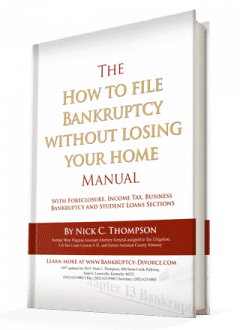Servicers make money from both fixed-rate mortgage loan modifications & foreclosures. Mortgage modifications can be a good or bad deal that lowers the mortgage’s interest rate. However, it is essential to understand that the servicers process these applications. The mortgage servicer earns fees for every letter and phone call made in collections. If the loan modification application fails, the mortgage servicer is paid to process it a second time.
As a result, there is a lot of mishandling of applications. Sometimes, the foreclosure may be processed while the modification is being processed. It is called dual tracking. The figures on HAMP show less than 5% of homeowners who apply for adjustable-rate mortgage modifications get one. These statistics are from the Congressional Oversight Panel report and websites that outline mortgage modification problems. Since 2015 many new regulations have tried to prevent this problem with lenders. Servicers promise help, but when the homeowner is turned down, he has delayed filing a Chapter 13 to cure a defaulted mortgage. The homeowner falls further behind, and filing a Chapter 13 to catch it up becomes harder.
Mortgage Modification: Foreclosure Failures in Louisville, KY
When a mortgage loan slips into default, it increases mortgage late fees and penalties. The servicers offering you a modification earn a portion of the late fees and penalties. Servicers make money from lenders and homeowners by providing adjustable-rate mortgage loan modifications. Loan servicers (collectors) make fees from servicing mortgages. It is not in servicers’ best interest for mortgages to be current. The longer you default, the more fees mortgage servicers and foreclosure attorneys earn. It is successful if loan modifications can stop the foreclosure, delay the sale, or cure the default. But the majority of the time, modifications are a costly false hope.
Modifications stop less than 10% of foreclosures. Banks and servicers don’t make deals that won’t increase profits. If the interest rate or payment temporarily drops, your equity often costs. The facts from a congressional study show:
- Servicers make more money from collection and foreclosure than loan modifications.
- Lenders and the government pay for the mortgage loan modification process. There is little or no accountability when servicers lose modifications or reprocessing applications. The loan modification application processing fees are born again. Current CFPB regulations and rules allow you to file a complaint that may help prevent further negligent processing.
Necessary Requirements to Get a Mortgage Loan Modification
You could think of it as wearing a tight-fitting shoe to get mortgage modifications. You have to need the mortgage loan modifications enough that they become willing to lower the interest rate instead of foreclosing. But you must also have enough income so that if they lower the interest rate, you can make the new lower mortgage payments. Mortgage modifications are essentially a refinancing application for a new mortgage.
The mortgage lender wants to get the home out of default. But there are no free homes. The homeowner has to take responsibility for making mortgage payments and not allow a default later. Modifications may include:
- Most commonly, lowering your interest rate to make a lower monthly mortgage payment.
- Extending the mortgage loan for a longer time. Often from a 30-year mortgage to a 40-year.
- Lowering the principle. But this is the least likely solution they will offer.
Make Sure About Finances
When you ask for mortgage modifications, the lender essentially is taking another home mortgage application. Many of the people you talk to have taken this job because they eventually want to graduate and become mortgage bankers.
They are working for the mortgage bank and taking these mortgage applications in training to become a mortgage officer one day. They ask the same questions when you initially applied for the first loan. It includes your income information and expenses in the calculation of your budget.
The common complaint I repeatedly hear about the process is how these mortgage modifications fail. You have a limited amount of time to get your financial information to them. After they start the process, you usually have to make three monthly mortgage payments for the mortgage to be approved.
Availability of Valid Financial Hardship
What causes you to become overdue on your mortgage is a temporary condition that will probably not be repeated. About 50% of the time a bankruptcy is filed, it is because of a brief illness.
After the illness is over, the debtor returns to work, but he may not be able to make as much as he did before. His new income causes a valid financial hardship. He lost the ability to make as much income as before the illness happened and now has a genuine financial problem. He is not choosing to pay. The condition is no fault of his own.
Eligibility to Pay
Finally, the debtor must have the ability to pay the lower payment. Here are several options, but you again show that you are refinancing what a temporary setback was. This may have been a natural disaster, accidental damage such as a fire, death of a wage earner in the family, disability, divorce, or extreme increase in an expense.
After such a loss, you often have a drop in income, but that income is enough to meet a mortgage expense if the monthly payment could be made affordable by lowering the interest by 1-2%. Just reducing it, this small percentage often decreases the monthly payment significantly. For instance, you may have gone from working to being on social security. Your new income is less, but you have the eligibility to pay if the amount is lowered.
Defaulting on Mortgage Modifications
Some people default on their mortgage modifications. You can still file a Chapter 13 to catch the mortgage up. But you cannot continue to fall further and further behind. Filing bankruptcy will only delay the process if you don’t make the monthly mortgage and plan monthly payments.
But if you default after they have worked hard to provide you with a lower payment, they will generally process any foreclosure as quickly as possible.
The main reason they gave the modification is to avoid default in the future. They are happy to help a homeowner recover. But it is not the mortgage company’s responsibility to make the monthly payments for the homeowner. You may have one or two opportunities to get the mortgage back. But eventually, bankruptcy judges and mortgage companies believe you will never recover and allow the home to be foreclosed.
Mortgage Modifications Foreclosures and Statistics
Only a third of the trial modifications became permanent. The highest recorded period peaked in October 2009 at 160,000 applications, and this dipped to 23,000 in December 2010. About 21% of permanently modified mortgages defaulted in the first year after modification. Defaults from these modifications were predicted to grow to 40% in five years (2015). The interest rates usually increased after five years, insuring defaults later and allowing servicers to bill twice.
The more successful modifications reduce interest from an average of 6.63% to 2.0%. 57% of modifications only extend the length of mortgages. 30% defer principal to balloon payments, which guarantee foreclosure later. Only a 3% reduction principal. 95% of permanently modified mortgages have less equity than before modification, and most decrease the rate of equity increases in the property.
Mortgage Modification Foreclosures and the Worst Companies
Successful mortgage modification ratios are Wachovia’s 89%, HomeEq 95%, and Bank of America (which took over Greentree and Countrywide) at 30%. The more predatory modify loan programs are, the worse performance is—30% of trial modifications are canceled due to incomplete documents. Many applications were probably lost because foreclosure is more profitable, and actual figures may be worse than reported. 21% of trial modifications defaulted, and 8% canceled for no reason.
Lenders now increasingly handle Mortgage modification applications. There are few or no more Federally operated modification programs. HARP has ended and was a program that replaced HAMP in 2013. Hamp ended 12-30-2012. The old Hamp Mortgage Modification, FDIC Foreclosure Modification program, and 2010 HAMP guidelines are here. You will often find modifications taking place during bankruptcy. Homeowners, however, need to face the fact they need to do one of the following:
- Save the home by filing a Chapter 13 to catch up on the mortgage arrears, or
- Defend foreclosures to have the time to find another home and explore alternatives.
Mortgage modifications often fail after modification. Not filing a Chapter 13 increases monthly payments in Chapter 13, sometimes making Chapter 13 unaffordable and insuring home loss.

Programs Other than Mortgage Modifications – Things Important to Know!
Here is a brief explanation of the different types of mortgage modifications, workouts, short sales, and foreclosure prevention programs. We suggest that you see an attorney, and talk about each plan’s distinct advantages and problems. These programs may not delay the bank’s foreclosure attorney selling your home. It would help if you defended the foreclosure while negotiating with the lender.
Real Estate workouts are when you contact your lender and explain that you have suffered a temporary problem. You attempt to negotiate with them to allow you to pay the missed Real Estate payments at the end of your contract. Other solutions are possible, such as lowering interest rates for a short period, making partial monthly payments, or catching up by increasing monthly payments.
The collection department may not negotiate with you if they see they will collect all their funds from a sale. Only a court order, bankruptcy, or proper foreclosure defense will delay or stop the foreclosure process. It can be costly for a loan modification company to file a foreclosure in a Kentucky Court if you fight it. Workouts are a good option for the mortgage company and the homeowner to avoid foreclosure costs. However, if a real estate workout is not possible, a Chapter 7 or 13 bankruptcy is an alternative to save the home or the mortgage company.
Contact Us to Get the Best Mortgage Modifications Instead of Foreclosure Failure!
If you are thinking of avoiding a foreclosure failure and getting reliable mortgage modifications, Nick C. Thompson, Bankruptcy Lawyer, is here to help you! We help you approach the best loan modification company. Get in touch to get the best foreclosure lawyers to solve the problem.
 Resources for Bankruptcy
Resources for Bankruptcy
Louisville, Kentucky Bankruptcy Forms
Problems with Loan Modification and Workout Agreements
Foreclosure & Mortgage Modifications • Low Success
Chapter 13 Plan Modifications in Louisville, Kentucky
If you are thinking about facing foreclosure, don’t delay because timing is crucial. I am here to help you. So, contact my office right away to start the conversation. Nick C. Thompson, Bankruptcy Lawyer: 502-625-0905.




